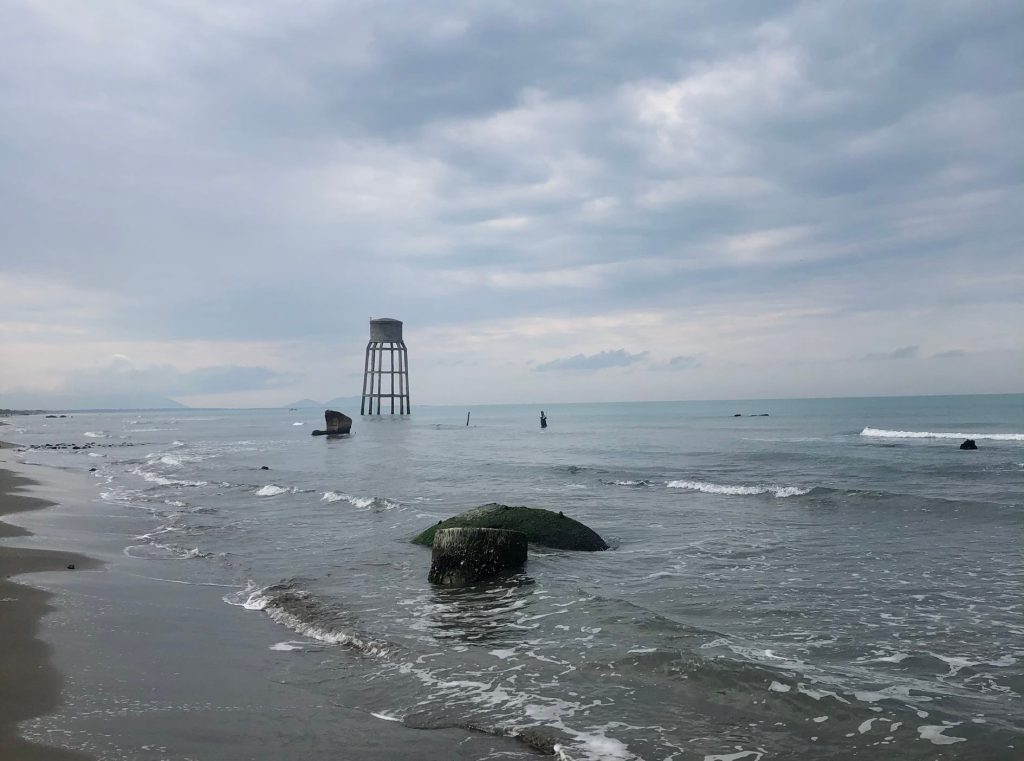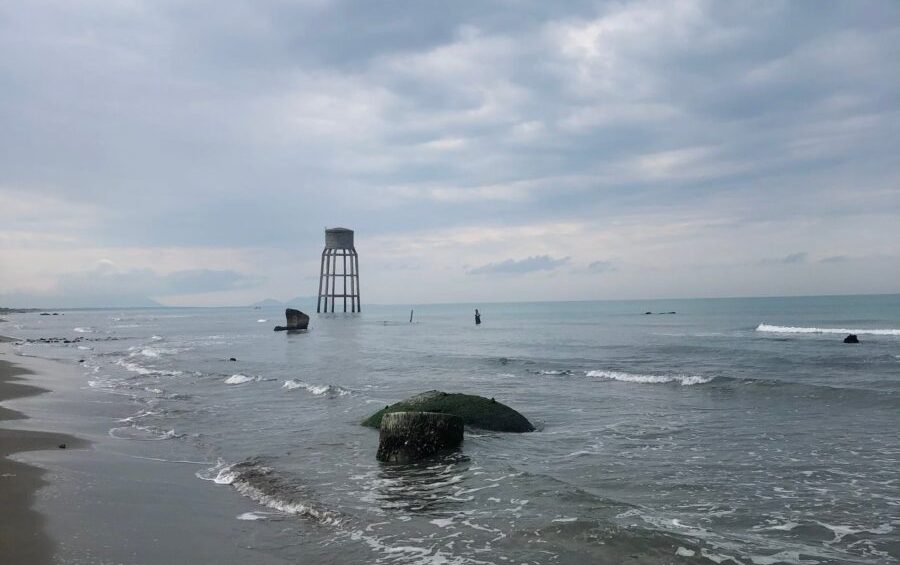Marine erosion is the advancement of land towards the sea. This phenomenon is a natural process which can be impacted by many secondary factors such as climate change. Coastal erosion is also accelerated by human activities such as deforestation or urbanization. The consequences of erosion have a long-term impact on lagoon and marine ecosystems. It can cause flooding of transient ecosystems such as lagoons or loss of coastal sandy beaches. A greater advancement of it could cause flooding of roads in the future which would bring a direct impact on the economy and especially on the tourism sector.
Based on the report “Mapping of environmental issues along the coast in Albania” developed by EcoAlbania and supported by the Westminster Foundation for Democracy, in Durrës coastal erosion is estimated at 17% while in Lezha 20%. The perception of local actors on the importance of coastal erosion in the multitude of environmental issues is estimated to be quite problematic. The main reasons that these actors list for this perception are related to the destruction of vegetation, climate change and indiscriminate taking of inert materials in river beds. In Lezha, coastal erosion reaches the highest number in Albania, which reaches an annual average of about 2-3m. Here the biggest impacts are related to the illegal use of the riverbed for construction materials with a maximum rating of 4 points, while the destruction of vegetation ranks 3.8 out of 4 points. A very devastating impact is also the construction of large dams of HPPs on the Drin River, which has led to the blockage of solid materials behind these dams and their obstruction on the way to the sea as a response to marine erosion. Referring to these conditions, the sea advances at a considerable speed, “occupying” the coast and alienating the beaches and fragile lagoon ecosystems. The situation is the same in Vlora where we encounter a lack of plants and forests estimated at 3.25 out of 4 points, while the use of river beds as a source of illegal use for construction reaches 3.5 out of 4 points.

Indiscriminate collection of aggregates from river beds is recommended to be stopped and placed under strict control supervision by inspectorates as well as it is recommended to undertake extensive reforestation programs on the steep slopes of valleys or coastal dunes.
In order to stop this phenomenon and preserve the ecosystem, a number of measures are being implemented by local institutions. During the discussions held in Lezha, Durres and Vlora with representatives of the local level and representatives of civil society about the recognition of coastal issues, several conclusions were reached.
First, there is a need for greater public awareness of the environment and marine erosion. To reduce this phenomenon, on-site inspections and austerity measures such as fines related to the taking of aggregates from river beds are expected to increase.
Another problem is encountered in the flora and fauna rich lagoon of Kune-Vain in Lezha, where marine erosion has caused the abandonment of the beach by vacationers. Here a pricely investment by the municipality is also the breakwater equipment along the coastline. Thus, there would be no more flooding and advancement of the sea towards the land. In conclusion, if this was accomplished then tourism would also improve. However, this solution to the problem has not yet been realized as municipalities lack funding and are focused on civic advocacy programs about the problems that erosion brings to the environment.
Another effective solution against erosion is to approach reforestation programs along coastal valleys and dunes. For example, this would positively affect the Soda forest in Vlora, where in the future the presence of pines would serve as a barrier to marine erosion. Not only that, but in this area the activities of cutting down trees should be stopped and strict measures should be taken for them. Based on statistics, a pine in the Soda Forest area takes about 30 years to grow. For this reason, it has been suggested by the members of the protected areas in Vlora to ban the tourist guides until the pines reach a level of growth.
Finally, conducting in-depth studies on marine erosion and equipping institutions with specialists in the Municipality or relevant institutions would further assist the civic awareness process. This comes due to the fact that a better transparent level in institutions when publishing accurate maps of erosion on the Albanian coast and explaining its consequences, the higher the level of civic awareness.







